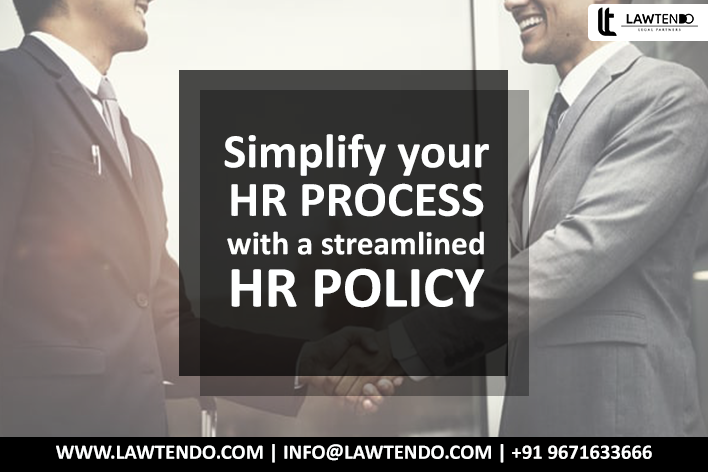Developing and implementing HR policies

Date : 04 Nov, 2019
Post By Shreya Mintri
Mr Mittal runs a marketing agency with about 20 people working for his agency. As most small-sized enterprises, Mr Mittal does not see any need of hiring an HR or developing any HR policies for his organization. He does not understand the purpose behind developing these policies as he sees them nothing more than just complying with the law. What Mr Mittal is missing as most businessmen these days is that HR policies are not just a way for organizations to comply with laws and protect them against lawsuits but they design the way an organization works (Organizational structure). It defines the company’s obligations towards its employees and a code of conduct that an organization expects its employees to adhere too. Elements of HR Policy: A thoroughly built HR policy that complies with an organization should have all the following considerations 1. Working Conditions in an organization 2.Compensation and Benefits provided to employees 3.Employee Relations, Placements & Recruitments 4.Health and Safety of each and all in the organization 5.Maintenance of Diversity at work 6. Training and Development provided to employees 7.Privacy policies 8.Terms and Conditions of the organization 9. Leave Policy 11.Performance metrics and management 12.Recruitment 13.Performance Management Although people to save money try to adopt standard policies widely available on the internet these days. However, a properly crafted policy which is specifically designed especially for your business can not only help them to employ the best-known practices in the market but also keep your business updated to latest trends and practices in the market as laws relating to such policies keep changing from time to time and it is important for organizations to avail maximum benefit they could from such changes. It is not always necessary to have an expert lawyer or a CS (Company Secretary) design and develop these policies but it is highly advisable to do so, as these are very complex and an employment lawyer may be able to suggest you the best practice relating to your particular industry from which you and your organization may get benefitted. How to develop an HR Policy Step1: Identify the need for the new policy that must be developed for your organization to solve the issues that you must be facing while dealing with the employees/vendors or in managing the organizational day to day tasks. You would also be required to draft new policies if you want to bring consistency in the different departments of the organization and make everyone clear about the things that need to be done in the organization. Also, if there is a change in legislation or laws, then new policies would be required to be drafted. Step 2: Consult with an employment lawyer. An employment lawyer’s day to day job consists of being up to date with such policies and market trends relating to such policies. It is important to take a lawyers opinion to create legally sound and valid policies adhering to Indian laws and regulations and safeguarding the interest of your organization and also the employees in the organization. Step 3: Time to draft the policy. After consulting with the lawyer and also with the core management regarding how well the policies could be implemented, as these are the people who are closely working with rest of the employees and knows best as to what can resonate with the employees, their feedback could prove highly beneficial, a policy should be drafted. It is again advisable to let an employment lawyer draft such a policy so that there is no loophole that could put your organization in grave danger in the time ahead. Step4: After the policy is drafted it is important to review the policy and take feedback from the core management on the policy being created and understand as to how well it can be applied. This ensures that people understand the procedures to be followed and their feedback could be used for further improvement of the already created policies. Once the policy is approved it must be implemented in the correct order. Developing an HR Policy will ensure a positive culture in any organization and only lead to the smooth functioning of the organization. This one-time investment may prove extremely beneficial in the long run to avoid any legal implications, whatsoever, that may come as a hurdle in your companies growth.





